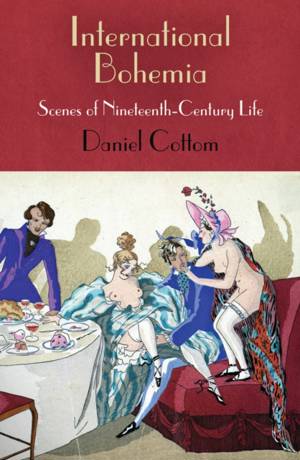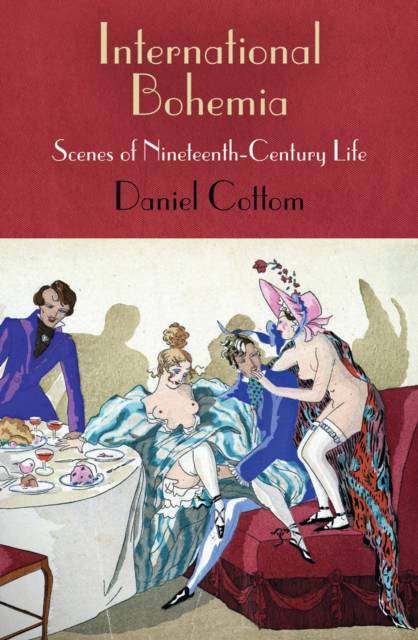
- Afhalen na 1 uur in een winkel met voorraad
- Gratis thuislevering in België
- Ruim aanbod met 7 miljoen producten
- Afhalen na 1 uur in een winkel met voorraad
- Gratis thuislevering in België
- Ruim aanbod met 7 miljoen producten
Omschrijving
How did this vagabond word, bohemia, migrate across national borderlines over the course of the nineteenth century, and what happened to it as it traveled? In International Bohemia, Daniel Cottom studies how various individuals and groups appropriated this word to serve the identities, passions, cultural forms, politics, and histories they sought to animate. Beginning with the invention of bohemianism's modern sense in Paris during the 1830s and 1840s, Cottom traces the twists and turns of this phenomenon through the rest of the nineteenth century and into the early years of the twentieth century in the United States, England, Italy, Spain, and Germany.
Even when they traveled under the banner of l'art pour l'art, the bohemians of this era generally saw little reason to observe borderlines between their lives and their art. On the contrary, they were eager to mix up the one with the other, despite the fact that their critics often reproached them on this account by claiming that bohemians were all talk--do-nothings frittering away their lives in cafés and taverns. Cottom's study of bohemianism draws from the biographies of notable and influential figures of the time, including Thomas Chatterton, George Sand, George Eliot, Henry Murger, Alexandre Privat d'Anglemont, Walt Whitman, Ada Clare, Iginio Ugo Tarchetti, and Arthur Conan Doyle. Through a wide range of novels, memoirs, essays, plays, poems, letters, and articles, International Bohemia explores the many manifestations of this transnational counterculture, addressing topics such as anti-Semitism, the intersections of race and class, the representation of women, the politics of art and masquerade, the nature of community, and the value of nostalgia.Specificaties
Betrokkenen
- Auteur(s):
- Uitgeverij:
Inhoud
- Aantal bladzijden:
- 368
- Taal:
- Engels
- Reeks:
Eigenschappen
- Productcode (EAN):
- 9780812244885
- Verschijningsdatum:
- 6/03/2013
- Uitvoering:
- Hardcover
- Formaat:
- Genaaid
- Afmetingen:
- 160 mm x 231 mm
- Gewicht:
- 748 g

Alleen bij Standaard Boekhandel
Beoordelingen
We publiceren alleen reviews die voldoen aan de voorwaarden voor reviews. Bekijk onze voorwaarden voor reviews.












